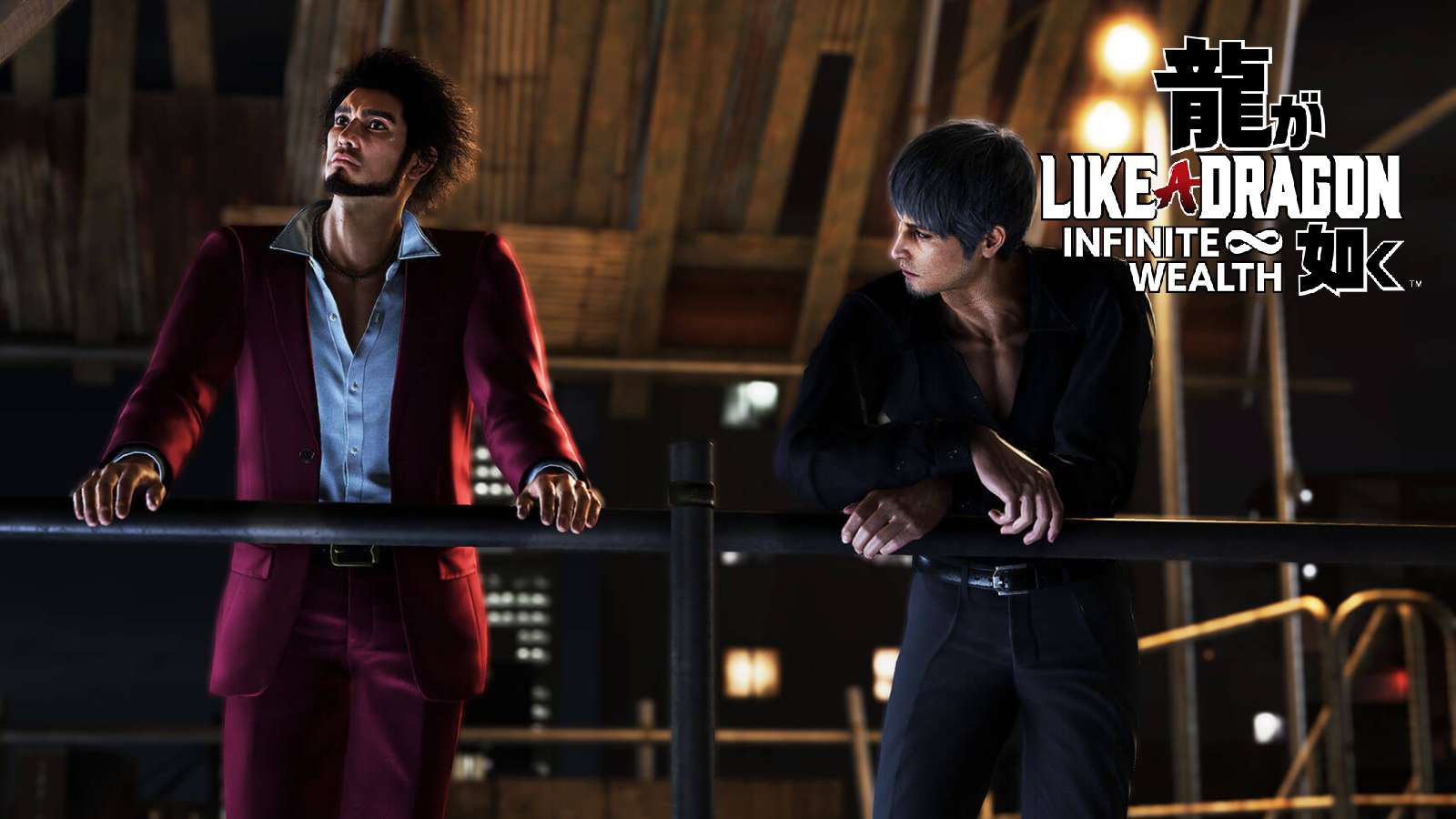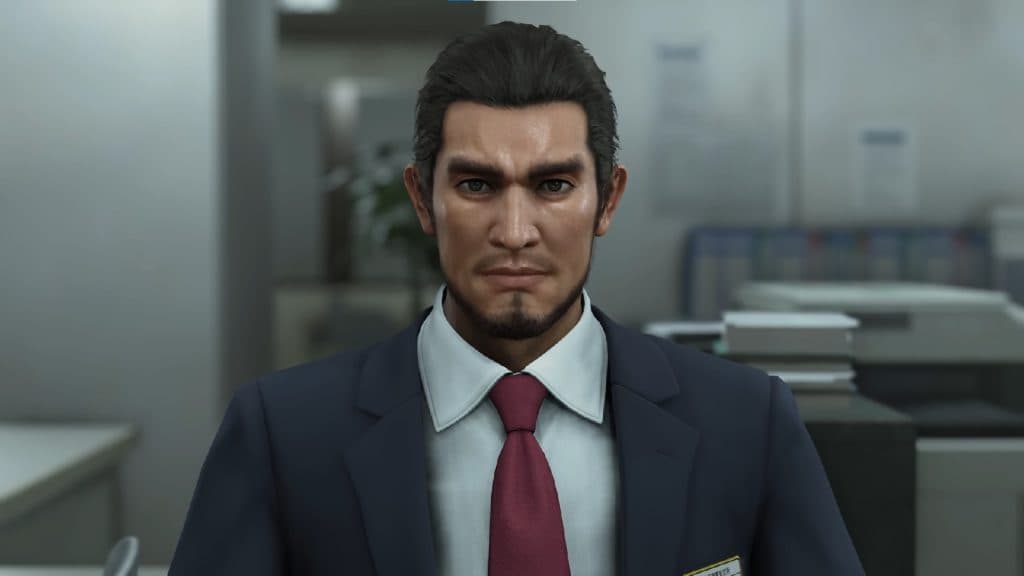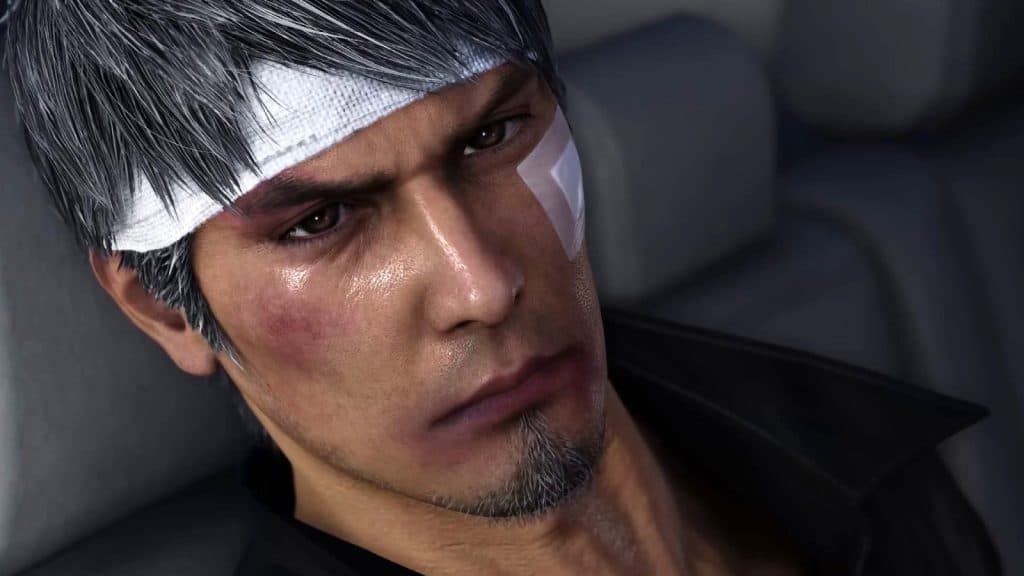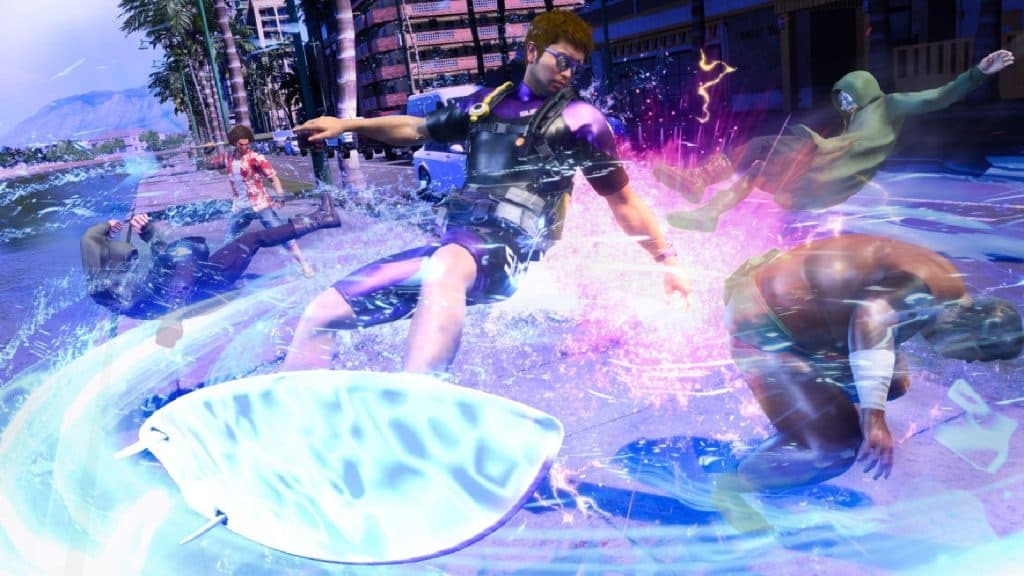Like a Dragon: Infinite Wealth review – A sensational passing of the torch
 Ryu Ga Gotoku Studio
Ryu Ga Gotoku StudioLike a Dragon: Infinite Wealth promised to not only truly cap off Kazuma Kiryu’s story, but also serve as a passing of the torch to Ichiban Kasuga. Living up to its promise and then some, it truly is an exceptional changing of the guard, with all the thrilling, quirky, and outright fun Yakuza-isms to boot.
When Yakuza: Like a Dragon released in 2020, it was hard not to initially see it as just another attempt by Ryu Ga Gotoku Studio to keep the franchise alive after the supposed end to Kazuma Kiryu’s story in Yakuza 6. Judgement, meant as a spin-off, moreso resembled mainline Yakuza games, however, missed that certain pizzazz Yakuza had so expertly honed over the years, and it felt as if nobody could truly replace Kiryu.
However, in came crashing Ichiban Kasuga, providing a drastic change in gameplay in its turn-based combat and a new protagonist that threw away the traditional stone face lead for a man who was more emotional and colorful, all wrapped up in a game that never lost sight of what made Yakuza so special. Like a Dragon and Kasuga brought in something fresh and new to a franchise that was slowly going stale.
But the appearance of Kiryu in Like a Dragon, and the subsequent The Man Who Erased His Name felt as if RGG had some buyer’s remorse. Wanting Ichiban to be their new face but they couldn’t truly let go of the Dragon of Dojima, refusing to let him pass despite the somber farewell we had in Yakuza 6 that tied up his story neatly.
Now in Like a Dragon: Infinite Wealth, it seems RGG is finally giving Kiryu proper closure, with this game not only serving as his swan song but also as a true changing of the guard with Ichiban.
Like a Dragon: Infinite Wealth – Key Details
- Price: $69.99/£59.99
- Developer: Ryu Ga Gotoku Studio
- Release Date: 26 January, 2024
- Platforms: PS5, PS4, Xbox Series X|S, Xbox One, PC
Like a Dragon: Infinite Wealth – Trailer
Played a Yakuza game? You’ve mostly heard this story
If there’s one problem Yakuza has always suffered from, it’s being formulaic. Sometimes, it works to its benefit, as coming into a new Yakuza game has always felt like going back to your family home for the holidays. Everything’s always warm and intimate, with a sprinkling of change, but always at its core the same.
However, the problem with such an approach is that if you’ve played through a Yakuza story before, you’ve effectively seen all the game’s stories.
Our protagonist is living life peacefully, only to be rocked by a deep conspiracy involving the Yakuza. After being reluctantly pulled back into the dark, they go on an adventure to find a missing person all while uncovering a sinister plot involving the criminal underbelly and said missing person, all while trying to protect their friends and family from mortal danger.
 Ryu Ga Gotoku
Ryu Ga GotokuFamiliar themes of loyalty, second chances, and chosen families are still present in Infinite Wealth. Any Yakuza obsessive (like myself, who has played through every single mainline game) has frankly partly grown tired yet also comfortable with the formula.
And sprinkle in a metric ton of lore behind the story, on par with the epics of Homer’s Iliad, and you have yourself a mainline Yakuza entry through and through.
But one of the main reasons the first Like a Dragon was so refreshing was the addition of Ichiban which brought some much-needed change, despite still largely sticking with the formula (to the point the start of the game felt like a near carbon copy of Yakuza 1).
Luckily for us, Ichiban’s presence still holds steady in Infinite Wealth, as his markedly emotive and goofy personality, in comparison to Kiryu, fits like a glove in Yakuza’s wacky world overflowing with convoluted plotlines, Sujimons, and constant tonal contrasts.
However, instead of being centered around Yokohama, this time much of the story is set in Honolulu, the first time a Yakuza game has been largely in a non-Japanese city. But as you can guess, the plot still unfolds similarly to every other Yakuza game before it.
With Ichiban’s story intertwined with Kiryu’s last days in Hawaii, it’s hard not to love the joint adventure. Even though it lacks the initial punch Like a Dragon had in Ichiban’s debut, the heartfelt goodbye to a protagonist of whom’s story we’ve been through for almost two decades leaves you in tears by the end.
Kazuma Kiryu’s (actual) swan song
If you’re like me, you were skeptical as to whether Infinite Wealth truly was the end of the line for Kiryu, as it felt like we have seen the supposed conclusion of his story so many times only for him to come back. Making it feel like he is always inevitable no matter which direction Yakuza goes.
Though now, finally, it seems this truly is the end for Kiryu. And what an unforgettable send-off it really is.
 Ryu Ga Gotoku
Ryu Ga GotokuHe still fights, refusing the submit to his fate, however, he, and the entire cast knows, he doesn’t have much time left. Once again, we’re left skeptical if it truly is the end of the line for Kiryu, but in one late-game chapter specifically, it feels as if all doubts are washed away.
To leave the world without regrets, Kiryu creates a bucket list in which we go around reminiscing old memories from the decades of installments and stories we’ve come to love. Everything small from the Serena bar and Shangri-la soapland, to the old homeless camp turned Kamurocho Hills, we get to remember all of it.
He meets with Date-san, the Stardust boys, we see the children of the Morning Glory Orphanage all grown up and still carrying Kiryu’s legacy onwards. We even get to go back to Kamurocho to reminisce on all the memories we’ve built during our two decades roaming around its cramped streets.
It’s a painful farewell for Kiryu by the end of the game, but you can’t help but feel his story truly has come to its conclusion, especially if you complete his bucket list. To that degree, it finally feels like the torch has truly been passed on from Kiryu to Ichiban to uphold what being a true Yakuza is all about.
Perhaps, it would’ve been nice if RGG broke the mold and structured its story differently for Kiryu’s farewell, as at times it felt like I was playing the same Yakuza-isms beat for beat, to the point I was able to predict story moments well before they happened.
But let’s be honest with ourselves, would we want Yakuza to change its story structure? In all it’s overly complicated mess that requires several games worth of plot to understand fully. Deep down, I don’t want that gone, despite being sensible to stave off staleness. And I have a feeling nobody else truly does either.
Why fix what isn’t broke
From the first Yakuza game in 2005, to Kiryu’s supposed last call in Yakuza 6 and the Judgement spin-offs to boot, the game stuck to its tried and true beat’em up structure because even back in the PS2 era, they already had it down pat. So why change something that isn’t broken?
This is why Like a Dragon and Ichiban’s introduction of turn-based combat (which was due to Ichiban’s obsession with Dragon Quest, a real-life RPG), felt like such a gamble for RGG in 2020. With many fans worrying Yakuza’s fast-paced action would disappear with the shake-up.
However, just like how they nailed their beat’em up gameplay the first time in 2005, they already perfected the turn-based pivot in Ichiban’s debut. Somehow, with such a major shift in the core gameplay loop, RGG had already nailed down a winning formula.
 Ryu Ga Gotoku
Ryu Ga GotokuIt squarely feels like a Yakuza game, with every single punch just as heavy and impactful, and the skills and heat actions just as painful and wacky as ever.
And even though it’s been three years since we’ve seen the turn-based combat, nothing major has changed. Frankly, at times while roaming around Yokohama with the gang, it felt like I was playing the first game all over again.
There are some minute changes to the Essences, but for the most part, everything from jobs to stats, skills, and gear all remains identical.
Something deep in me wished it had some sort of shake-up, but to be honest, I was glad that they kept it largely the same, as time away from the turn-based combat system had me missing it even more.
Graphically, the game also hasn’t changed much, utilizing the same Dragon Engine we’ve become familiar with since the release of Yakuza 6. But then again, why would they need to change out the engine when what we’ve got certainly still holds up?
It isn’t a Yakuza game without detours and substories
Yakuza and side stories are somehow a match made in heaven. Despite most substories being a complete tonal departure from the main plot, with our protagonist caught up in odd stories of go-kart racing, cabaret managing, a knock-off Pokemon game with weirdos instead of cute animals, and plenty, plenty more.
But it isn’t a Yakuza game without this, and Infinite Wealth’s substories are just as odd and off-kilter as every other mainline Yakuza game you know and love.
One of the biggest and newest additions to the substory is Dodonko Island, in which we get what could be labeled as RGG’s version of Animal Crossing. As Ichiban, we are transported to Dodonko Island and are tasked to clean up and rebuild the locale to its former glory as a resort.
Here we do everything you’d expect in an Animal Crossing-esque management sim. We farm for resources to create furniture and get money to refurbish the island, and you can use the furniture to jazz up the island to your liking, all while expanding it bit by bit.
We also get the introduction of Sujimon battles and trainers, which as you can tell is essentially a continuation of the substory for the first Like a Dragon, Who’s That Sujimon.
Continuing in the Pokemon homage of the substory’s name, the new side game has you capturing Sujimons (which are essentially weirdos you come across in your adventures), putting together a team of them, and battling it out with other Sujimon trainers’ team, all with a story arc of its own.
Yes, both side games are a major distraction from the main plot (I can attest to spending hours on both), but frankly, that’s the Yakuza experience.
 Ryu Ga Gotoku
Ryu Ga GotokuThe substories are as weird, wacky, and surreal as ever in Infinite Wealth, as is fitting for Yakuza. And just like everything that has preceded it, some of the game’s most heartfelt humanistic moments come from these substories.
From a salaryman running away from his problems knowing he’s getting scammed by a girl, to Ichiban getting advice from a matchmaker about needing to let go of his love regrets, you know it’s going to be a touching scene when the melancholic substory theme song starts playing in the background.
Verdict – 4/5
Like a Dragon: Infinite Wealth marks one of the most important junctures in Yakuza franchise history: that it’s time for Kiryu’s generation to retire. Throughout the entire game, we celebrate Kiryu’s life, but also see the staggering amounts of changes that come with a fresh face.
We have a new combat system, a new protagonist to attach ourselves to in Ichiban, a rotating cast of likable characters, new cities like Yokohama and Honolulu to make ourselves home in. Change, especially in a staple like Yakuza is extremely scary, and it’s quite clear RGG for a long time was reluctant to truly move on from Kiryu.
Infinite Wealth no doubt still has many stumbles as it falls into the traps of the usual Yakuza-isms of odd pacing and gameplay detours combined with overly convoluted plots. However, it’s all still very much what we’ve come to love from Yakuza. With gameplay that leaves you satisfied with every punch, and the Dragon Engine holding up extremely well despite its age, it’s another fantastic outing across the board.
Yakuza is a unique series, and for a long time, it felt like the only reason it worked in all its glorious surreality and heartfelt storylines was Kiryu. However, Infinite Wealth proves Yakuza can exist past Kiryu’s legacy, and Ichiban is the right man to bring about Yakuza’s new generation.